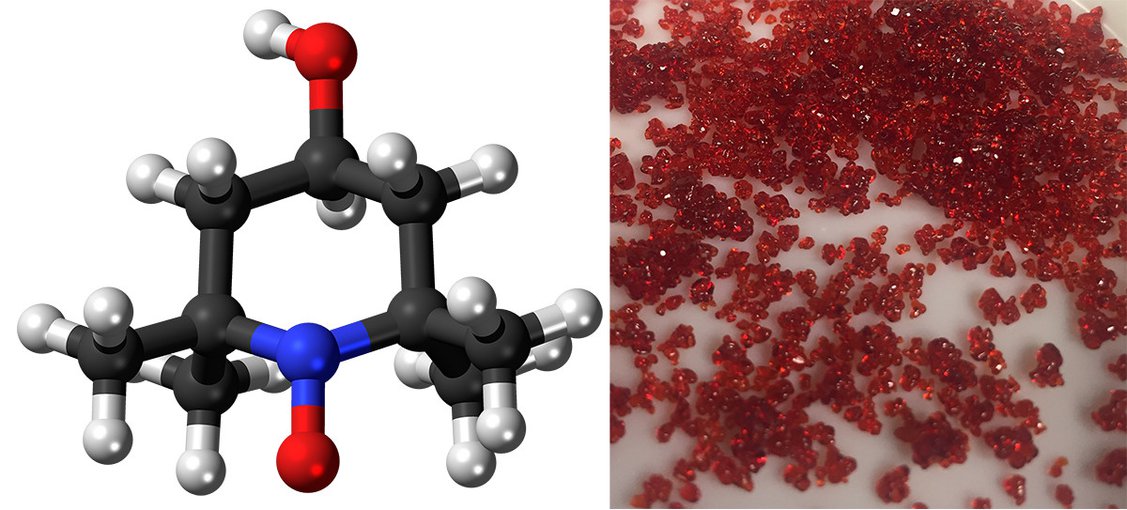
April 23, 2018
Research Highlight
Selectively Oxidizing Carbohydrates and Nucleosides

TEMPO is the common name of the chemical compound (2,2,6,6-Tetramethylpiperidin-1-yl)oxyl (chemical formula: (CH2)3(CMe2)2NO). It is a solid, reddish substance and has applications in biochemistry.Image credit: Wikimedia Commons (Jynto, Smokefoot).
Carbohydrate chemistry is important to living organisms on Earth. For one, carbohydrates are broken down to provide energy for cellular function. Carbohydrates contain hydroxyl groups (OH), and the synthesis of these molecules is reliant upon protection/deprotection of these OH groups. Because of this, the ability to selectively oxidize unprotected (or partially protected) hydroxyl groups on carbohydrates has been an active area of research for a number of years.
Recently, a team of researchers has reported an improvement in the efficiency of a process known as TEMPO-catalyzed oxidation, which is a technique used for regioselective oxidation of molecules like carbohydrates and nucleosides to produce sugar acids (uronic acids). The scientists modulated the temperature of the reaction and were able to achieve higher yields of oxidized products when compared to previous studies. Smaller sugar acids are known to be present in meteorites and could have played a role in chemical evolution on the early Earth. This provided additional motivation for the team of astrobiologists to access these compounds in a synthetic manner in order to study their properties.
The paper, “Effect of temperature modulations on TEMPO-mediated regioselective oxidation of unprotected carbohydrates and nucleosides,” was published in the journal Bioorganic & Medicinal Chemistry Letters. The work was performed at The Scripps Research Institute, associated with the NSF/NASA Center for Chemical Evolution (CCE) at the Georgia Institute of Technology in Atlanta, Georgia. The CCE is a collaborative program supported by the National Science Foundation (NSF) and the NASA Astrobiology Program.
Additional Resources
Cooper and Rios (2016) “Enantiomer excesses of rare and common sugar derivatives in carbonaceous meteorites,” PNAS, 113 (24), E3322-E3331. doi: 10.1073/pnas.1603030113
Cooper et al. (2001) “Carbonaceous meteorites as a source of sugar-related organic compounds for the early Earth, Nature, 414, 879-883. doi:10.1038/414879a